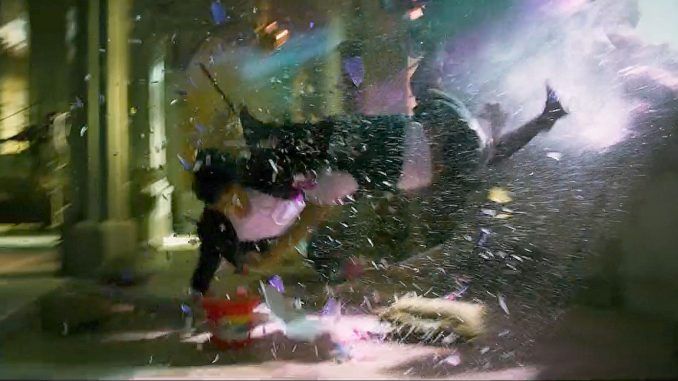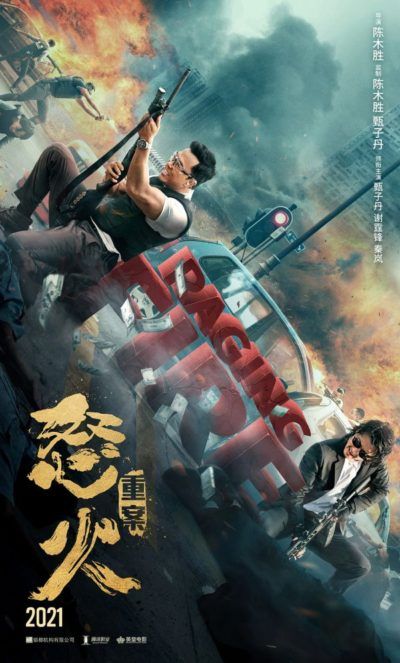
Rating: B-
Dir: Benny Chan
Star: Donnie Yen, Nicholas Tse, Lan Qin, Angus Yeung
This was the director’s final movie, as he died of cancer during post-production. The film is, unsurprisingly, dedicated to him, and it’s a fitting memorial. This feels like a throwback to the golden era of Hong Kong cinema in the nineties: not least in the presence of Yen, who both looks and acts about half his late-fifties age. He plays super straight-edge cop, Cheung Sung-Bong, who won’t bend the law for anyone, regardless of the situation. His refusal to do so means he misses out on the raid that would seal a case he’s been working on for years. However, this turns out to be a good thing, since the cops are ambushed at the location.
The perpetrators are a gang led by Yau Kong-Ngo (Tse), a former colleague of Cheung’s. He was sent to jail for killing a man during an earlier kidnapping investigation, with Cheung’s honest testimony a key factor. Now, he’s out and ready to pay back his ex-friend, in a variety of ways, destroying his honour, career and family. For as soon as I saw Cheung and his pregnant wife, I knew the latter was going to be put into serious peril before the end of the film. At a chunky 126 minutes, that might take a while; still, I’d hardly say that it drags. For it feels as if every ten minutes or so, the makers feel the need to one-up themselves with another action sequence.
 These aren’t just the obvious hand-to-hand combats, although these are, understandably, the highlights. There are also some impressive car chases, and a couple of spectacular gun battles in the streets of Hong Kong, which reminded me of Heat. Yen may be a step or two slower than he was at his peak – it feels as if Tse is occasionally having to slow down to keep up, if you see what I mean. Yet Donnie has adapted by changing his style of fighting into something more grounded; it’s little if any less impressive to watch, just in a different kind of way. His solo assault on a gang’s shantytown, and the final battle (in a church, naturally!) between Yau and Cheung, are the stand-out sequences.
These aren’t just the obvious hand-to-hand combats, although these are, understandably, the highlights. There are also some impressive car chases, and a couple of spectacular gun battles in the streets of Hong Kong, which reminded me of Heat. Yen may be a step or two slower than he was at his peak – it feels as if Tse is occasionally having to slow down to keep up, if you see what I mean. Yet Donnie has adapted by changing his style of fighting into something more grounded; it’s little if any less impressive to watch, just in a different kind of way. His solo assault on a gang’s shantytown, and the final battle (in a church, naturally!) between Yau and Cheung, are the stand-out sequences.
Unfortunately, the script is also a throwback to the simplistic days of the nineties. Cheung is particularly one-dimensional, which is a shame, since Yen’s acting abilities have certainly improved over the three decades since. He simply has no motivation beyond the surface, though this is significantly better than his wife, who exists purely to be a) pregnant, and b) put in danger. The flashbacks which reveal why Yau is the man he is, are also poorly integrated: it took me a while to realize the kidnapping case in question actually took place years previously. In the end, it doesn’t matter much: with action as slick and well-executed, competence from the other elements would be a bonus, rather than a requirement. If, somehow, you weren’t already stoked for Yen’s upcoming appearance in John Wick 4, this should rectify that.
